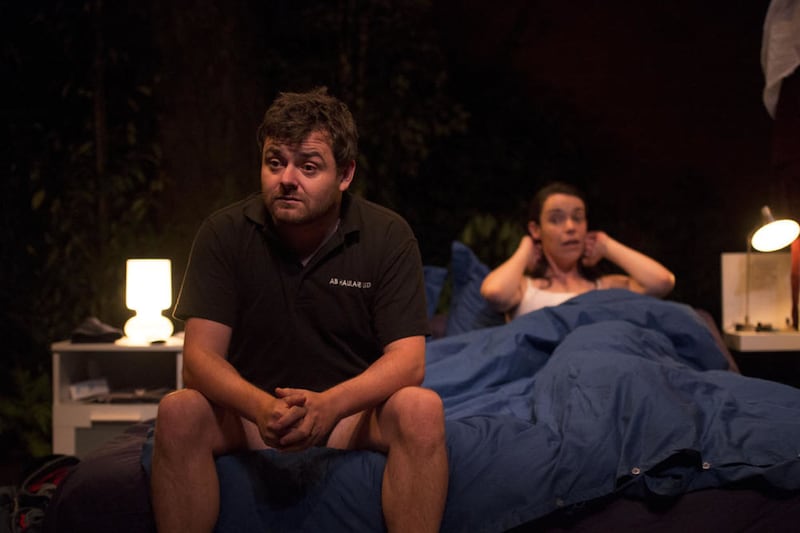THE Lyric Theatre is making a bit of a habit of stellar co-productions, often local versions of dramas by significant European authors. Following Brian Friel's Uncle Vanya a couple of years back, Lucy Caldwell's redrawing of Chekhov's Three Sisters arrives in a few days.
Last night, though, we were treated to a harrowing critique of our materialistic society in Conor McPherson's bleak yet oddly humorous take on Franz Xaver Kroetz's 1975 play The Nest.
A two-hander co-produced by the Lyric and the Young Vic Theatre in London, it's probably no accident that the woman is named Martha. As in the more richly textured Who's Afraid of Virginia Woolf by Edward Albee, this working-class couple seem tied into co-dependency then face near-loss and corrosive mutual blame.
In the process we got a lengthy piece of brave physical theatre as the man, played by Laurence Kinlan, tries to kill himself. The actor portrayed the animal quality of grief well, having nearly caused baby son Stefan's death, but in the end it seemed a bit soap operatic.
You've got to survive your life, Kurt says more than once. It seems a modest ambition yet how to survive this modern morality tale wasn't so easy. As he and his touching wife, played by fellow LoveHate star Caoilfhionn Dunne, padded around their flat, then shouted, you thought of 1960s kitchen sink drama.
But where Osborne and co demonstrated the sizzling energy of rage, here it was often pathos. The sublime soundtrack by noted pop composer PJ (Polly) Harvey pointed the emotions via a kind of lyrical grunge. Alyson Cummins' attractive set, with the lakeside rubble in the foreground, also played its part.
Directed by Ian Rickson with insight but a couple of longueurs, this production will undoubtedly leave you thinking. After Kurt and Martha come to a kind of ethical conclusion vis a vis his exploitative, criminal boss, there is a happy ending with their baby son Stefan toddling around their allotment.
Both actors conveyed the invisible baby utterly convincingly and apart from a paean of praise to the union rep, it ended up being about isolation, about politics and ultimately about family.
:: Until October 22; lyrictheatre.co.uk


